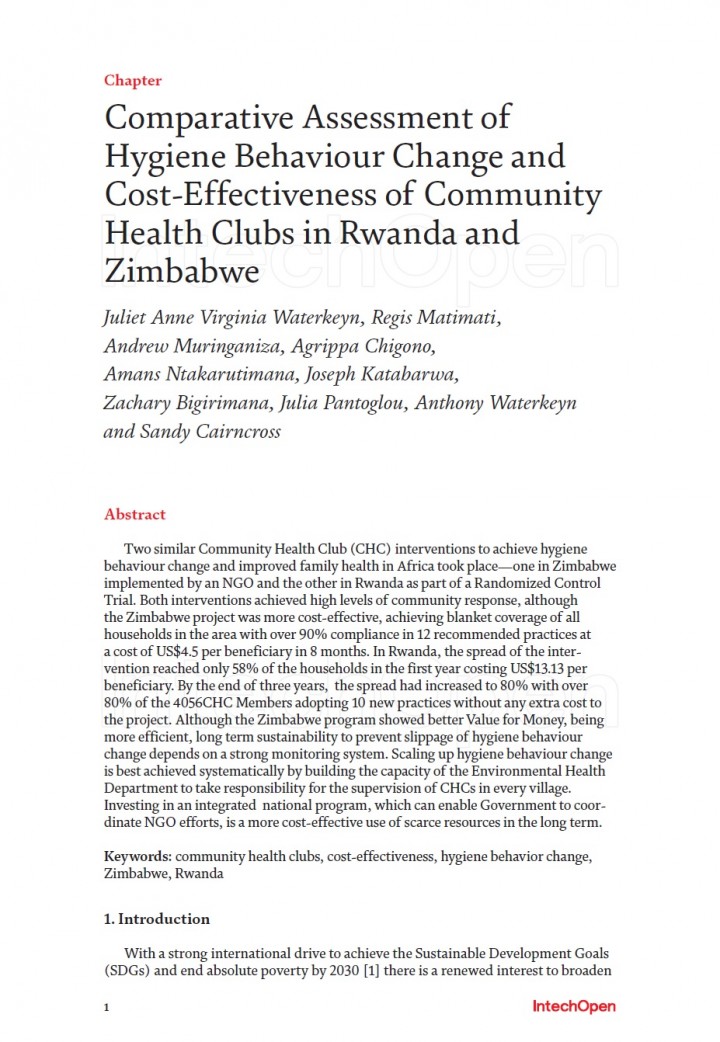Comparative Assessment of Hygiene Behaviour Change and Cost-Effectiveness of Community Health Clubs in Rwanda and Zimbabwe
Waterkeyn, J., Matimati, R., Muringaniza, A., Chigono, A., Ntakarutimana, A., Katabarwa, J., Bigirimana, Z., Pantoglou, J., Waterkeyn A., Cairncross, S. (2019)

Published in: 2019
Pages: 29
Publisher:
IntechOpen
Author:
Waterkeyn, J., Matimati, R., Muringaniza, A., Chigono, A., Ntakarutimana, A., Katabarwa, J., Bigirimana, Z., Pantoglou, J., Waterkeyn A., Cairncross, S.
Uploaded by:
SuSanA Admin
Partner profile:
common upload
915 Views
5 Downloads
Two similar Community Health Club (CHC) interventions to achieve hygiene behaviour change and improved family health in Africa took place—one in Zimbabwe implemented by an NGO and the other in Rwanda as part of a Randomized Control Trial. Both interventions achieved high levels of community response, although the Zimbabwe project was more cost-effective, achieving blanket coverage of all households in the area with over 90% compliance in 12 recommended practices at a cost of US$4.5 per beneficiary in 8 months. In Rwanda, the spread of the intervention reached only 58% of the households in the first year costing US$13.13 per beneficiary. By the end of three years, the spread had increased to 80% with over 80% of the 4056CHC Members adopting 10 new practices without any extra cost to the project. Although the Zimbabwe program showed better Value for Money, being more efficient, long term sustainability to prevent slippage of hygiene behaviour change depends on a strong monitoring system. Scaling up hygiene behaviour change is best achieved systematically by building the capacity of the Environmental Health Department to take responsibility for the supervision of CHCs in every village. Investing in an integrated national program, which can enable Government to coordinate NGO efforts, is a more cost-effective use of scarce resources in the long term.
Bibliographic information
Waterkeyn, J., Matimati, R., Muringaniza, A., Chigono, A., Ntakarutimana, A., Katabarwa, J., Bigirimana, Z., Pantoglou, J., Waterkeyn A., Cairncross, S. (2019). Comparative Assessment of Hygiene Behaviour Change and Cost-Effectiveness of Community Health Clubs in Rwanda and Zimbabwe. IntechOpen
Filter tags
English Sub-Saharan Africa














